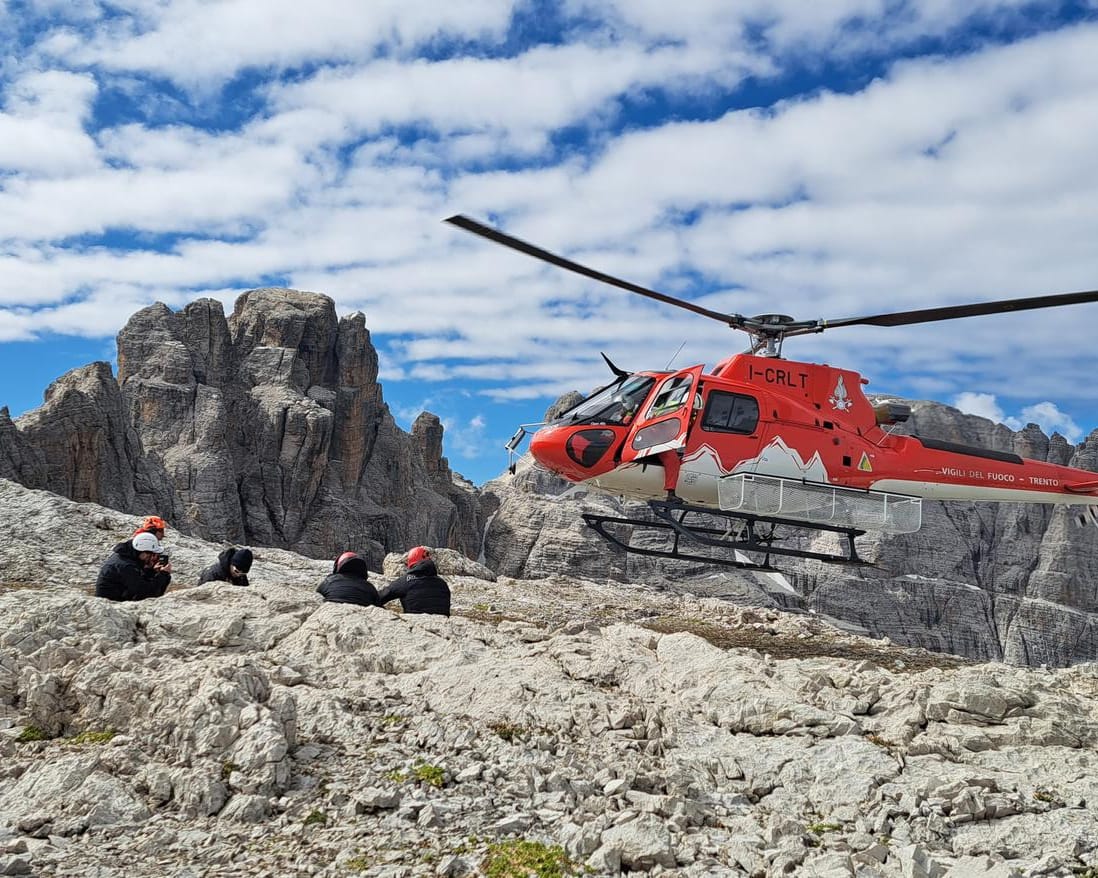Hundreds of hikers and visitors were evacuated, and numerous trails shut down following a series of rock collapses on the slopes of Cima Falkner in the Brenta Dolomites in northern Italy. Experts noted a significant increase in landslides in the region, tied to thawing permafrost.
In recent days, witnesses reported loud rumbling sounds and subsequent rockfalls, with dense dust clouds rising from Monte Pelmo in Val di Zoldo after sections of rocky spires detached and plunged into the valley below in Selva di Cadore, part of Belluno province.
Another collapse occurred on Cima Falkner, where specialists indicate the entire area is experiencing erosion due to rising temperatures and broader climate changes. No injuries were reported, and debris halted higher up the slope.
Authorities in Trentino-Alto Adige issued a statement: "Multiple rockfalls have taken place on both the western and eastern sides of Cima Falkner in the Brenta Group. Consequently, all climbing and hiking routes in the affected zone have been closed without delay."
They added: "All hikers in the vicinity have been safely evacuated. We strongly advise everyone to remain vigilant and adhere strictly to safety guidelines."
After initial reports of rockfalls, geologists conducted a survey on Tuesday with helicopter assistance, confirming "the entire summit is undergoing an active geomorphological shift, likely due to permafrost deterioration."
While rockfalls are common in the Dolomites, experts this year observed a notable surge in such events, attributed to extreme heat and weather patterns worsened by climate change.
"We have never witnessed such a dramatic rise in rockfalls before," said Piero Carlesi, head of the scientific committee at the Italian Alpine Club (CAI). "Landslides are increasing, and the primary factor is the climate crisis—this is undeniable."
He explained: "Mountains are naturally prone to collapse—they won't endure forever as we know them. What's new is the clear acceleration of these events, driven by higher temperatures and extreme weather linked to climate change."
Cold conditions once acted like a binding agent, freezing water in rock cracks and holding them together. However, Carlesi noted that rising temperatures are weakening this effect, causing fractured rock to break apart more frequently. "This is becoming increasingly common," he said.
Last year, researchers involved in a study by environmental group Legambiente warned that the Marmolada glacier—the largest and most iconic in the Dolomites—could vanish entirely by 2040.
Their findings revealed that the glacier is losing 7-10 cm in depth daily, with 70 hectares (173 acres) of its surface lost in the last five years.
Read next

"Softball booms in Brazilian city as Cuban migrants surpass Venezuelans for the first time"
Roberto Hernández Tello, 59, originally from Camagüey, Cuba, had hoped to reach the United States for a better future. But due to stricter immigration policies under the previous U.S. administration, he found himself in Curitiba, southern Brazil, thousands of miles from home.
Like him, many Cubans have recently arrived

"Public asked to aid in catching drug gangs using 'mother ships' near UK shores"
Police Ask Coastal Residents to Aid in Combating Drug Smuggling
Authorities have called on residents of coastal areas in the UK to assist in disrupting criminal groups that are employing increasingly creative tactics to bring large amounts of cocaine into the country.
Officials have noted a rise in “at-sea drop-offs”

"Germany's historic largest gay nightclub files for bankruptcy"
Germany’s longest-running and largest LGBTQ+ dance venue has filed for bankruptcy after operating for nearly 50 years, succumbing to financial pressures and shifting trends in Berlin’s nightlife.
Internal challenges and the rise of dating apps contributed to SchwuZ’s difficulties over the past year. In May, the venue

